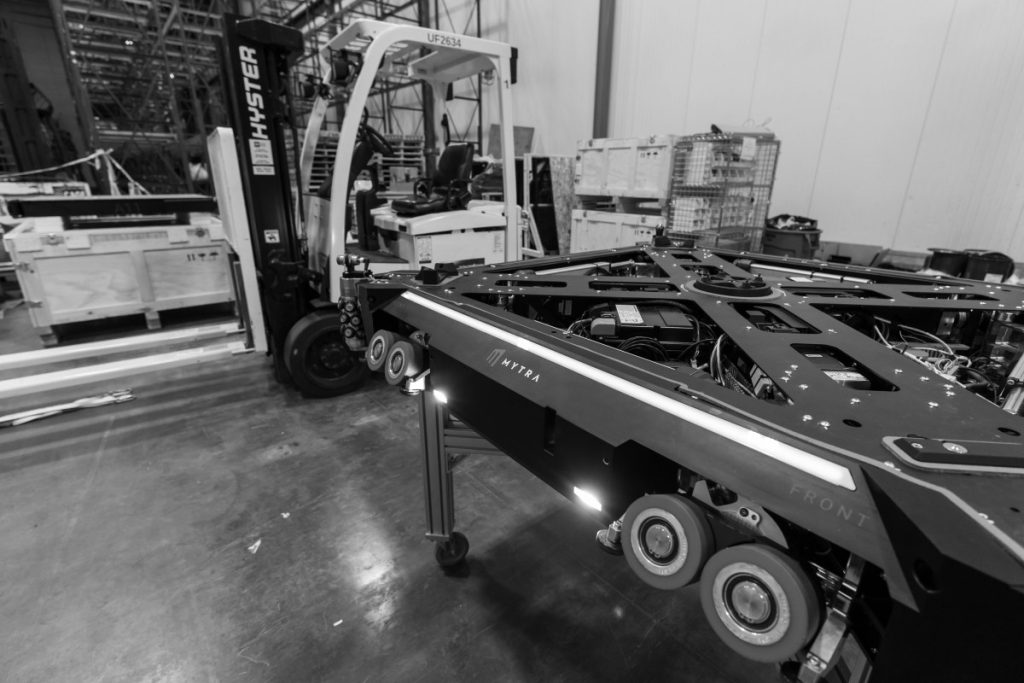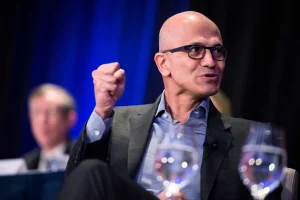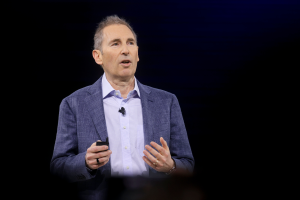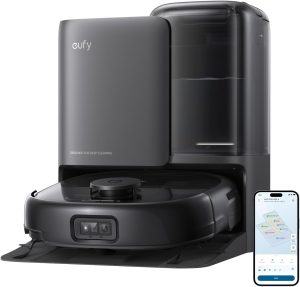Ex-Tesla Innovator Pioneers New Robotics Venture

In the bustling world of robotics, a new player has emerged quietly yet with significant promise. Mytra, founded in May 2022 by former employees of leading EV companies like Tesla and Rivian, is aiming to revolutionize warehouse automation. The pandemic highlighted and exacerbated inefficiencies in supply chains worldwide, making automation an urgent necessity.
However, despite the advances, labor shortages persist, leaving a substantial gap for innovation. Enter Mytra, which has already garnered interest from major industry players. Chris Walti, Mytra’s co-founder and CEO, leveraged his extensive experience in mobile robotics at Tesla, particularly in projects like the Optimus humanoid robot, to identify key issues and opportunities. With its stealth mode now lifted, Mytra is set to tackle these challenges head-on.
Mytra’s Launch and Background
Mytra, a new robotics startup, has been operating quietly since its inception in May 2022. The company was founded by veterans from electric vehicle firms like Tesla and Rivian. The goal? To rethink warehouse automation. Since the pandemic, warehouse automation has become a hot topic, with companies like Amazon, Locus, Zebra, and Fetch leading the charge. Yet, despite the growing interest, labor shortages remain a significant challenge in the industry.
Globally, only about 5% to 10% of warehouses are automated in a meaningful way. This statistic shows that there is still a lot of room for innovation and improvement. Mytra aims to address these gaps. Chris Walti, Mytra’s co-founder and CEO, discovered these automation issues firsthand during his time at Tesla. He spent seven years working in engineering and mobile robotics at the carmaker, ultimately leading the team that developed Tesla’s humanoid robot, Optimus.
Challenges at Tesla
Walti describes his time at Tesla as a constant quest for better solutions. He often found that the existing automation systems were inadequate for Tesla’s needs. This led the team to build custom solutions in-house. One of the significant issues they faced was the inability of Autonomous Mobile Robots (AMRs) to move payloads as heavy as 3,000 pounds. This was a considerable limitation, especially in car manufacturing. Walti’s team had to develop their own solutions to meet these demands.
According to Walti, the idea for a humanoid robot came from Elon Musk himself. “Elon was like, ‘We should build a humanoid,’” Walti recalled. His team was tasked with leading this ambitious project. “Everything you saw on AI Day was a product of those efforts,” he added. However, Walti eventually realized that the humanoid robot project wasn’t what he wanted to focus on long-term.
Mytra’s Unique Approach
Mytra’s technology shares similarities with vertical robotic storage solutions from companies like AutoStore. But there are key differences. One of the main advantages of Mytra’s system is its ability to manage heavy payloads. This makes it a versatile solution for various warehouse needs. Walti explained that the system can move objects, whether they are pallets or bookshelves, in countless different ways. This flexibility is one of the key features that sets Mytra apart from its competitors.
Walti describes Mytra’s system as the most “kinematically free” one ever conceived. This means that it can perform a wide range of movements effortlessly. This capability is particularly useful in a warehouse setting, where the ability to move different types of objects efficiently is crucial.
Mytra’s Initial Success and Funding
Despite operating in stealth mode until now, Mytra has already attracted significant interest. The startup has initiated a pilot program with grocery giant Albertsons. Furthermore, Mytra has six other Fortune 50 companies in various stages of the pipeline. This early interest shows that the industry is eager for innovative solutions to existing problems.
In a boost to its efforts, Mytra recently closed a $50 million Series B funding round. This brings the total funding to $78 million. The investment came from notable investors, including Greenoaks and Eclipse, which shows confidence in Mytra’s vision and technology.
The Future of Warehouse Automation
The broader context of warehouse automation shows a promising future. As labor shortages continue to be a problem, automated solutions will become increasingly valuable. Mytra’s advanced technology could play a significant role in shaping the future of this industry. By providing solutions that can handle heavy payloads and perform a wide range of movements, Mytra is positioning itself as a leader in warehouse automation.
According to Walti, it might take a while before humanoid robots become commonplace on production floors. However, he remains optimistic about their long-term impact across various sectors. This cautious optimism reflects a realistic understanding of the challenges and opportunities in the field of robotics.
Conclusion
Mytra is making waves in the world of warehouse automation. With its innovative approach and robust technology, the startup is poised to address significant gaps in the industry. The early interest from major companies and substantial funding are promising signs of Mytra’s potential to transform warehousing and beyond.
Mytra is making significant strides in transforming warehouse automation. With its innovative approach and robust technology, Mytra is poised to address substantial gaps in the industry. The early interest from major companies and substantial funding are promising signs of Mytra’s potential to revolutionize warehousing and beyond.





